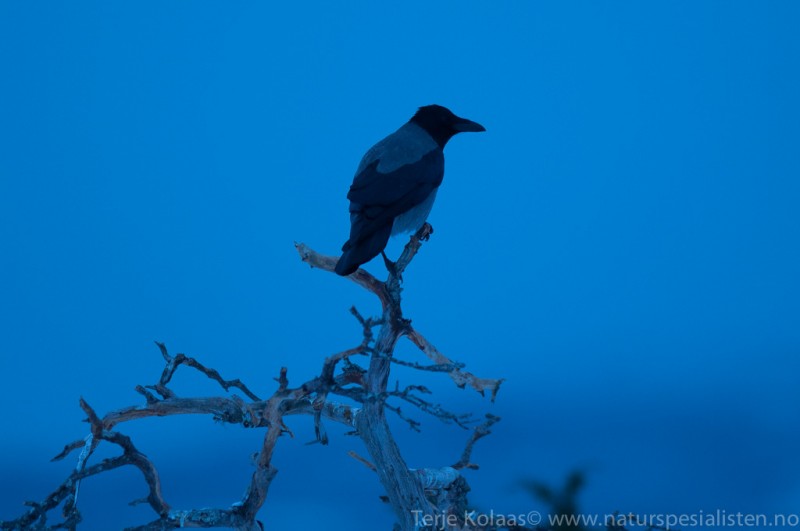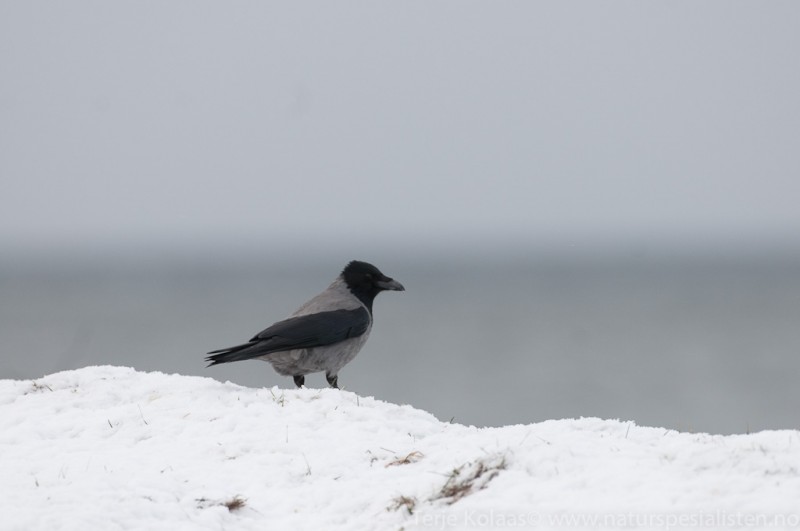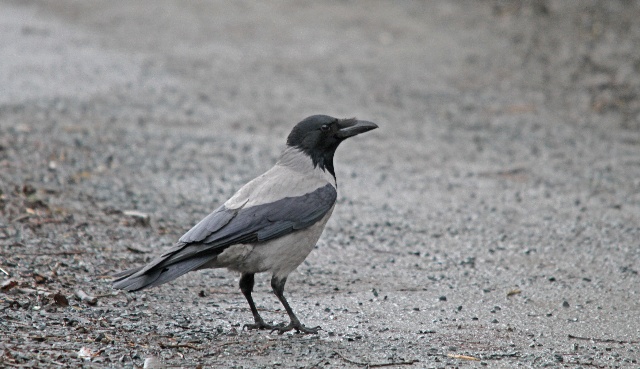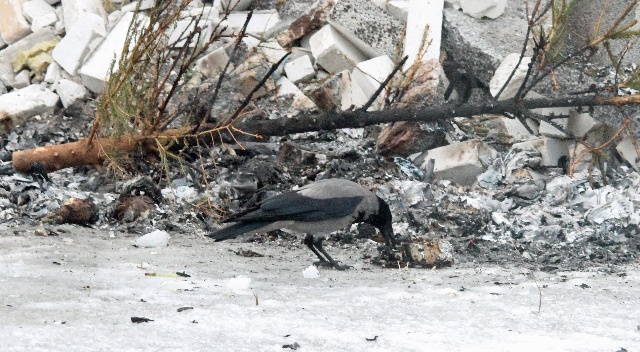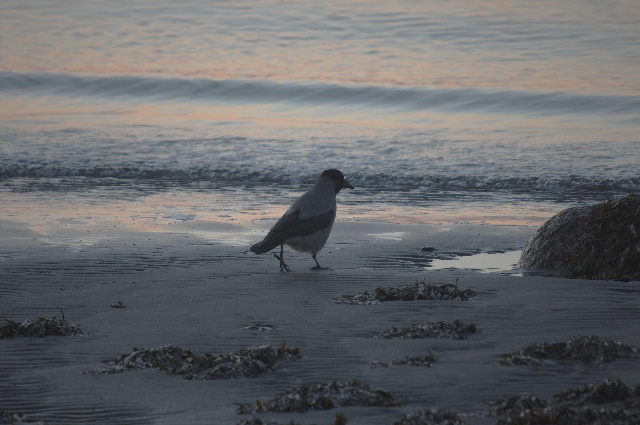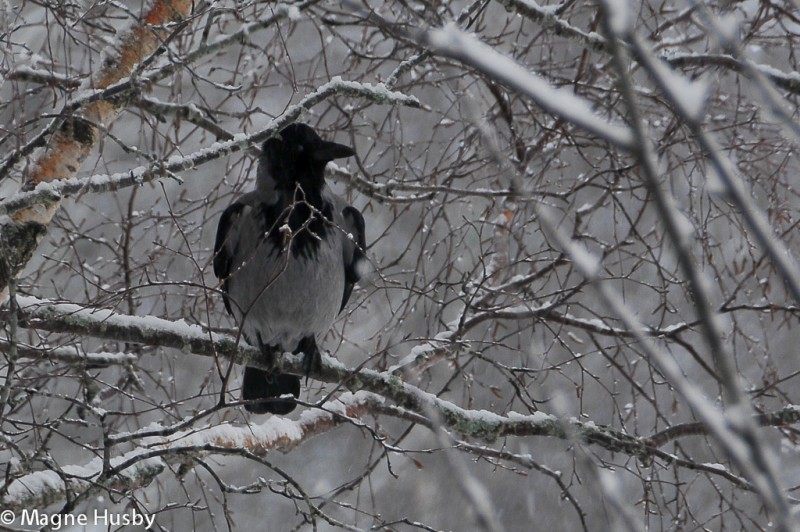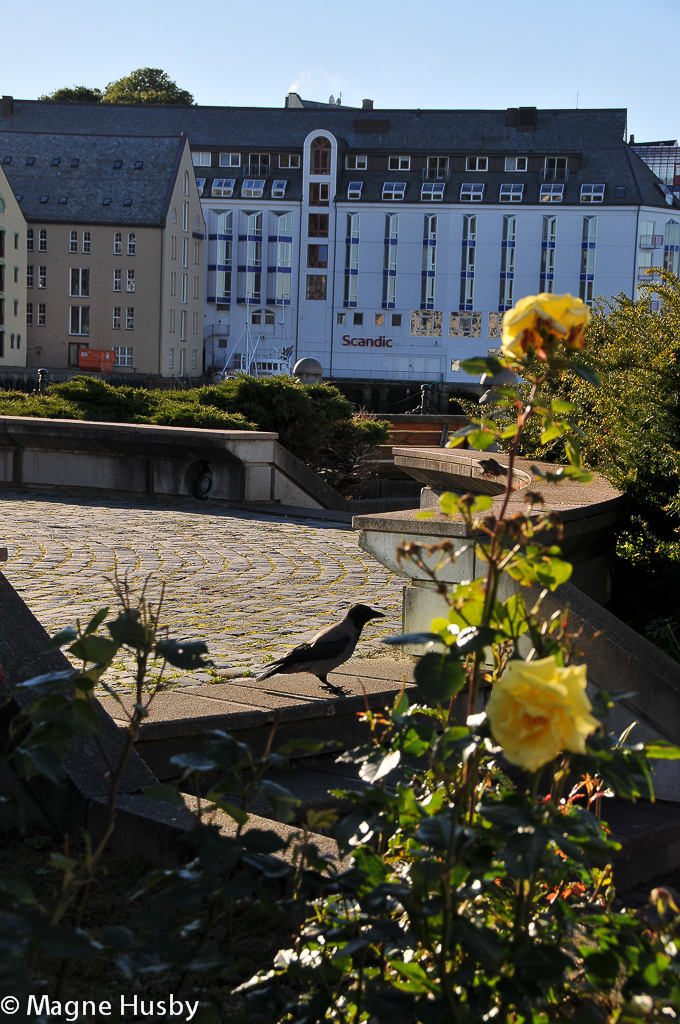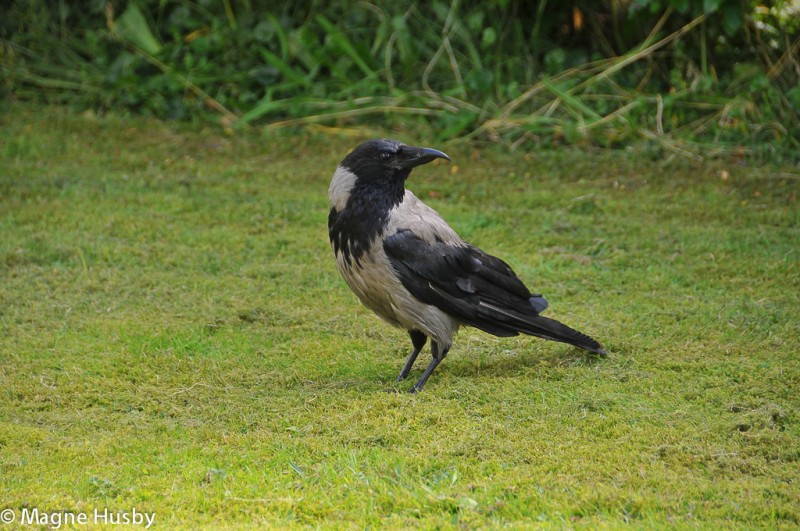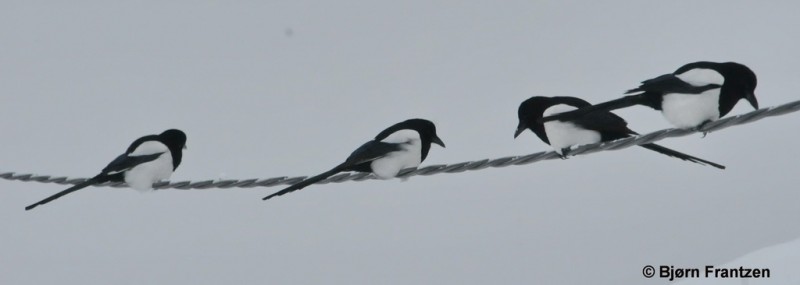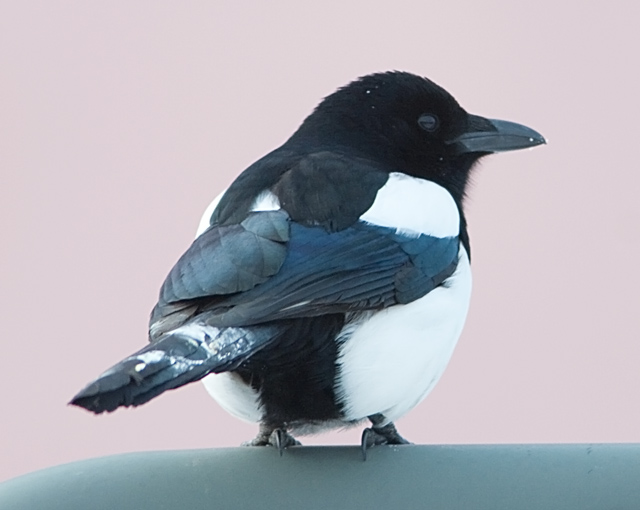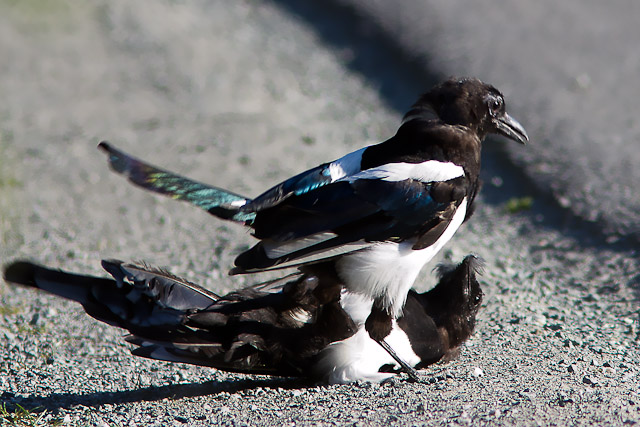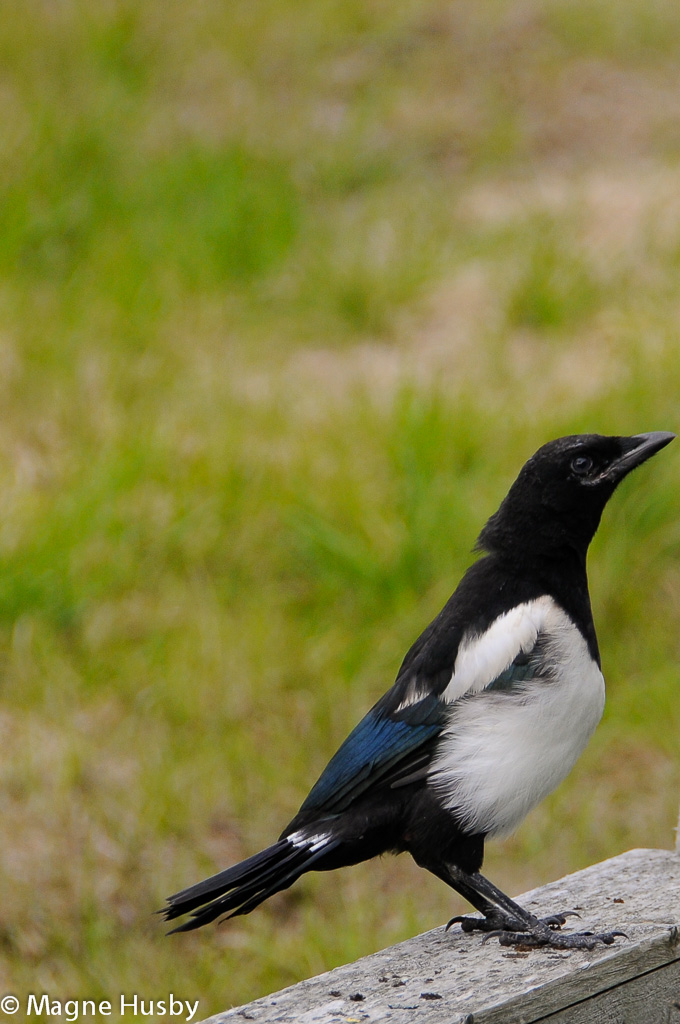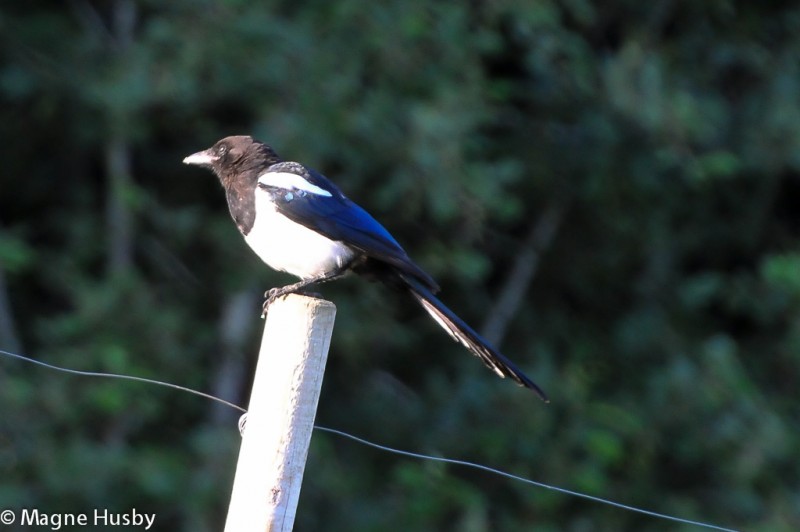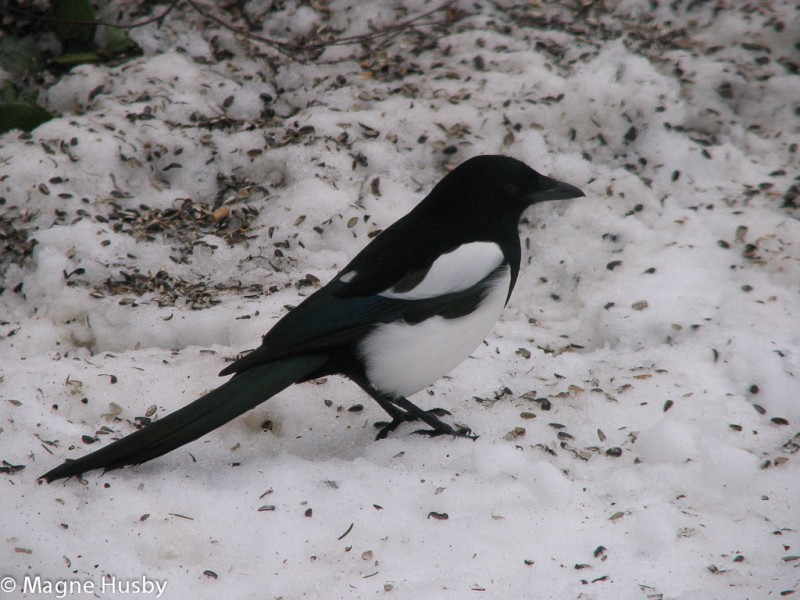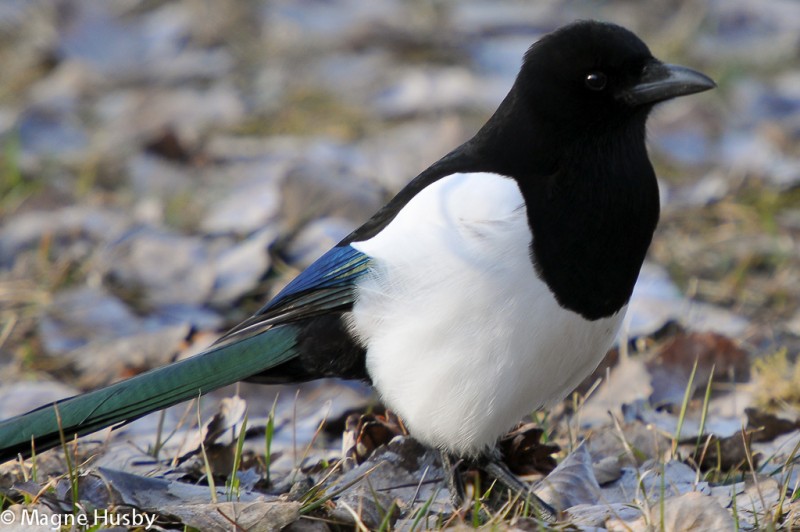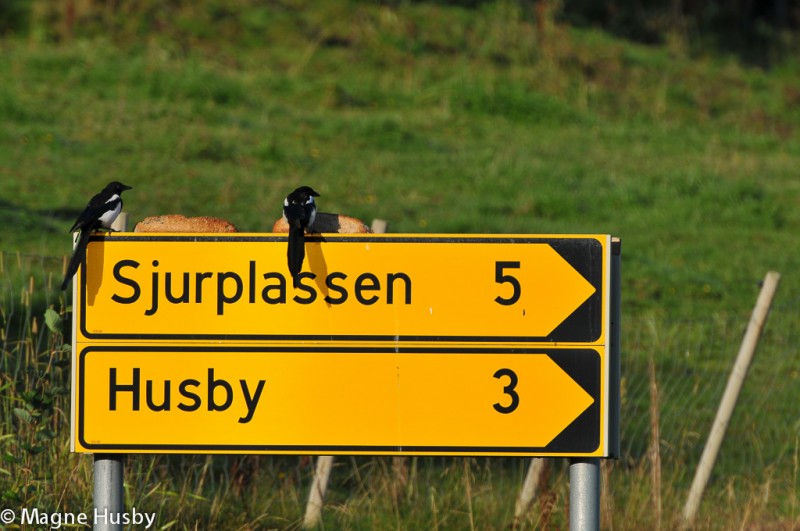Hooded Crow (Corvus cornix)
Magpie (Pica pica)
Unmistakable, if not in silhouette. In poor light or at a distance, when the grey plumage is not visible, confusion with other crows is possible. Bill is deeper than in Rook, and the upper mandible more curved towards the tip. Smaller than raven, and much less heavy bill. The wings are shorter and more rounded, and the tail is not wedge-shaped. Posture less upright than Rook.
Sound:Cawing is aggressive and more raucous than in Rook, with more rolling r's. Has a large repertoire of seldom heard calls, and even sub-song. Many of these calls are surprisingly resonant and pleasant sounding, and sometimes resembles Raven. Probably impossible to tell from Carrion Crow with certainty by sound alone.
Cawing:
Distribution:
Wikipedia: map (se also Xeno-canto below)
Ecology:Birdlife ecology
Links:
Observation.org Latest observations
Image search Flickr NB! May give other species
CCUnmistakable. Only black and white passerine of it's size in Europe. Short rounded wings and exceptionally long tail. Wings fan-shaped and tail graded. Tail constitutes about half of the total length in adult birds. Compact body but relatively long legs. Flat crown. White wing patches/flight feathers very conspicuous in flight.
Sound:Most notable sound a harsh, chattering "chechechecheche" used as warning call, or when mobbing predators. Rich repertoire includes soft and surprisingly varied sub-song.
Alarm call:
Distribution:
Xeno-canto: map
Ecology:Birdlife ecology
Links:
Observation.org Latest observations
Image search Flickr NB! May give other species
CC
 English
English Albanian
Albanian
 Armenian
Armenian
 Bulgarian
Bulgarian
 Catalan
Catalan
 Croatian
Croatian
 Czech
Czech
 Danish
Danish
 Dutch
Dutch
 Finnish
Finnish
 French
French
 Georgian
Georgian
 German
German
 Greek
Greek
 Hungarian
Hungarian
 Italian
Italian
 Latvian
Latvian
 Lithuanian
Lithuanian
 Macedonian
Macedonian
 Norwegian
Norwegian
 Polish
Polish
 Portuguese
Portuguese
 Romanian
Romanian
 Russian
Russian
 Sami : Lule sami
Sami : Lule sami
 Sami : North sami
Sami : North sami
 Sami : South sami
Sami : South sami
 Scientific names
Scientific names
 Serbian
Serbian
 Spanish
Spanish
 Swedish
Swedish
 Ukrainian
Ukrainian

